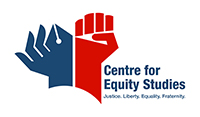‘UNCLEAN’ OCCUPATIONS:
Savaged by Tradition
Harsh Mander
A central feature of the Indian caste system is the division of labour, or the allocation of occupations, based on one’s birth into a particular caste. Traditionally, the caste system permits little occupational mobility between these socially assigned caste-based occupations. Whereas all dalit people are regarded to be ritually ‘polluted’ simply because of their birth to dalit parents, there are some against them who are the most stigmatized, because of their engagement in socially assigned occupations that are considered ritually ‘unclean’.
Small-Town Waste and its Life World: Social Indispensability and Social Exclusion
Barbara Harris White
India Exclusion Report 2018-19
This chapter by Barbara Harriss-White looks at the life-worlds of most vulnerable workers in the Waste Economy (WE) of a small town in South India, one of India’s 7400. It looks at the diversity of urban waste, waste-work and processes of stigmatised disadvantage, discrimination, exclusion, expulsion and dehumanisation associated with vulnerable workers of both genders in this town. It also examines the informal practices of the local state, its non-policies for waste, its own practices of social exclusion. The paper examines waste-world in this small town through research interviews with government officials, public activism involved in Dalit activism, party politics, legal activism and social movements, in addiiton to about 84 workers in waste management.
The Long March to Eliminate Manual Scavenging
Bezwada Wilson and Bhasha Singh
2016
This chapter of the India Exclusion Report highlights the ground reality and everyday experiences of people who are dependent on manual scavenging for their livelihood. It focuses on the extent and nature of the problem of manual scavenging and describes the struggles that have taken place against it in an attempt to ensure an ultimate goal of elimination.
